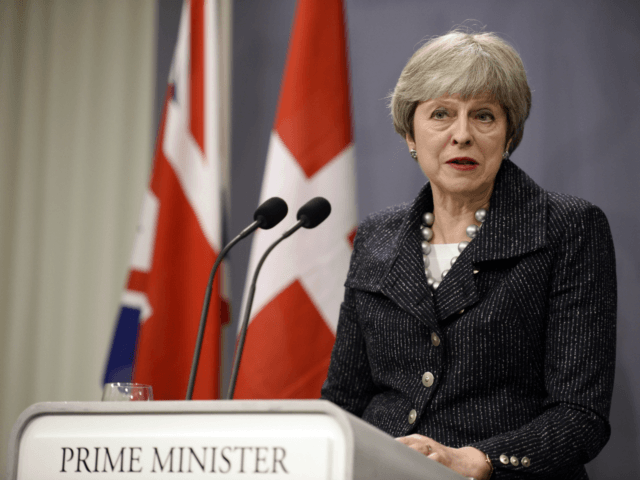Brexit secretary David Davis has thrown the Prime Minister’s favoured ‘customs partnership’ into doubt, claiming it could, in fact, be illegal according to international law, as he backs a clean Brexit instead.
The plan supported by Theresa May would see the UK collecting tariffs on goods for the European Union (EU) once they are inside the UK, before paying them back in an attempt to keep borders open with the nations inside the Customs Union, but without being a member.
However, it is illegal to discriminate between domestic and imported goods inside a nation, World Trade Organization rules insist, for example.
Serious legal obstacles to the complex ‘customs partnership’ plan could therefore emerge, and the government would not have time to resolve them before Brexit day, Mr. Davis has reportedly pointed out.
The UK might consequently be forced to stay inside the union, tied to all its rules and unable to control trade policy, it is claimed.
“In that scenario, you’d end up staying in the customs union because you’d have no other choice,” a senior source told The Times.
The attorney general will provide an urgent legal opinion to be reported back to the Prime Minister. A second committee is assessing the legality of the alternative “maximum facilitation model”, also know as “Max Fac”.
Mr. Davis backs this second option, along with the foreign secretary Boris Johnson, environment secretary Michael Gove, and leading Brexiteer Jacob Rees-Mogg.
This option would allow the UK to fully take back control of trade policy after the divorce, but critics have claimed that checks would be needed in the Irish border – one of the EU’s red lines.
Mr. Rees-Mogg and Mr. Johnson, however, say technology can be used to check goods without a hard border, and border complications and threats of violence in Ireland are being exaggerated to force the UK to stay tied to the union and its rules.
David Lidington, a Cabinet Office minister regarded as one of Theresa May’s closest allies, told BBC Radio 4’s Today programme Wednesday: “There was serious criticism made about the technical detail of both of the models that are on the table.”
Adding: “For example, on the new customs partnership idea, the questions are around to what extent does this inhibit an independent trade policy for the future and can we mitigate those impacts.
“The other one is does it affect Northern Ireland in an adverse way and can we mitigate the impact of that?
“What any government does is that when we are putting forward internally some ideas about relationships with other countries, new treaties, that we test the legal risks involved.”

COMMENTS
Please let us know if you're having issues with commenting.